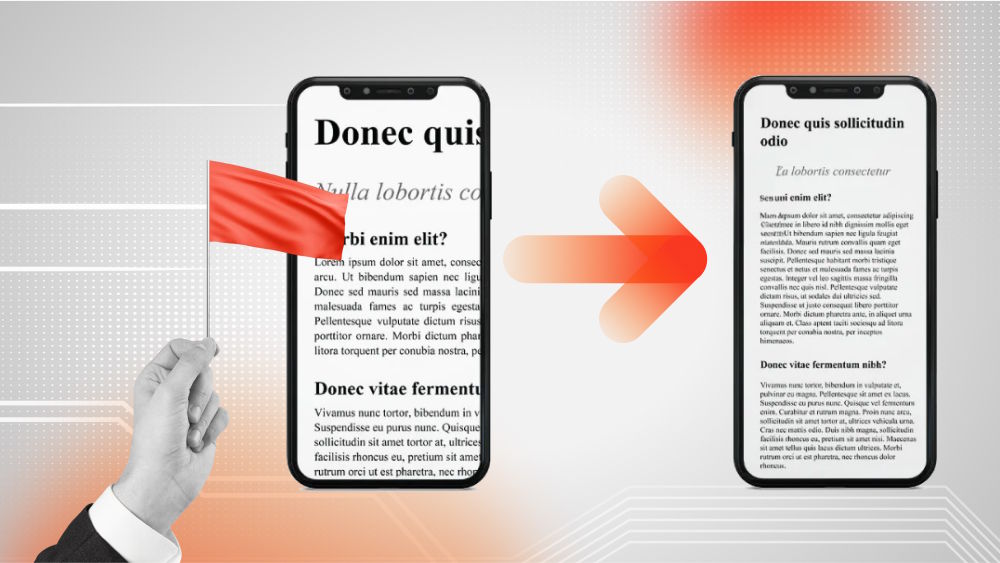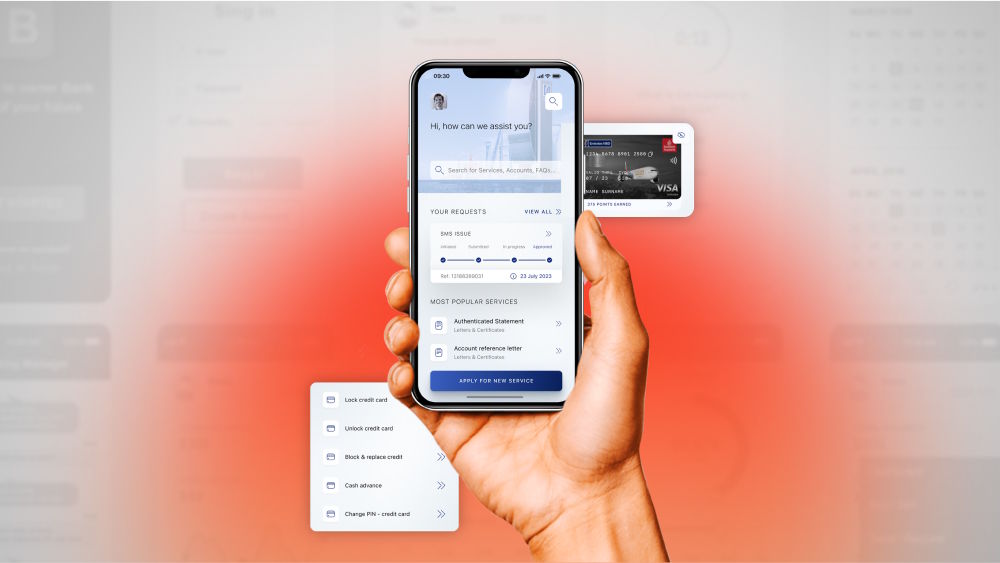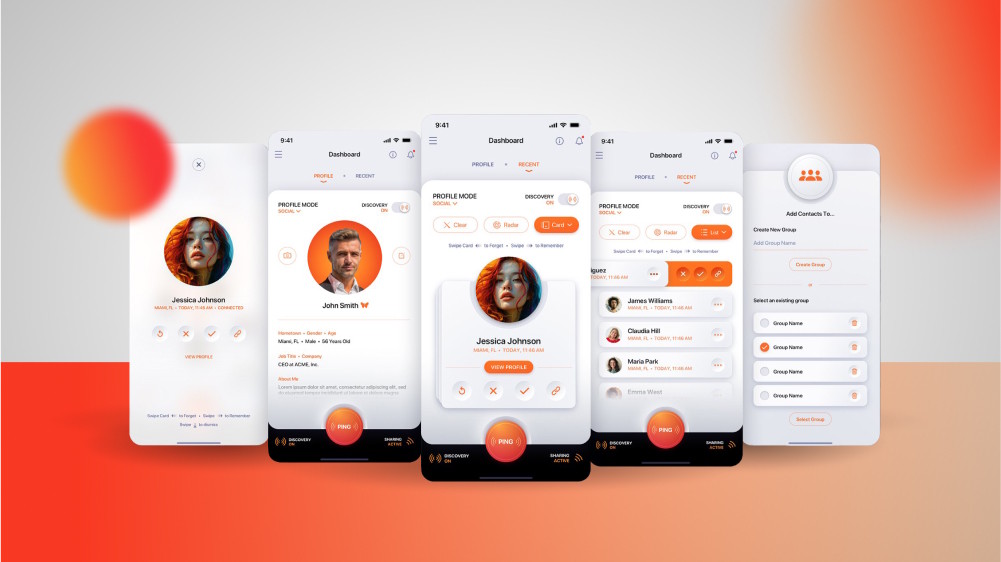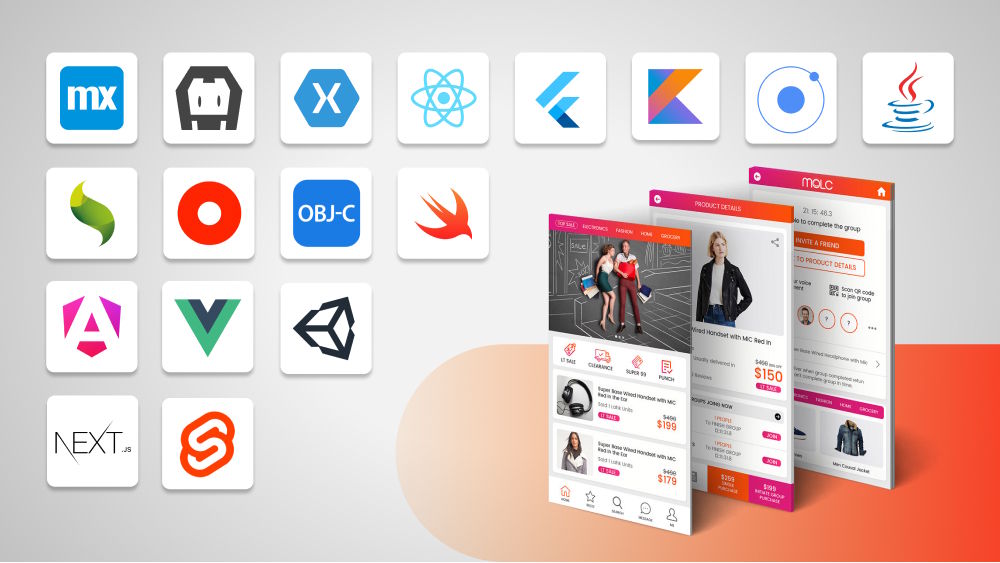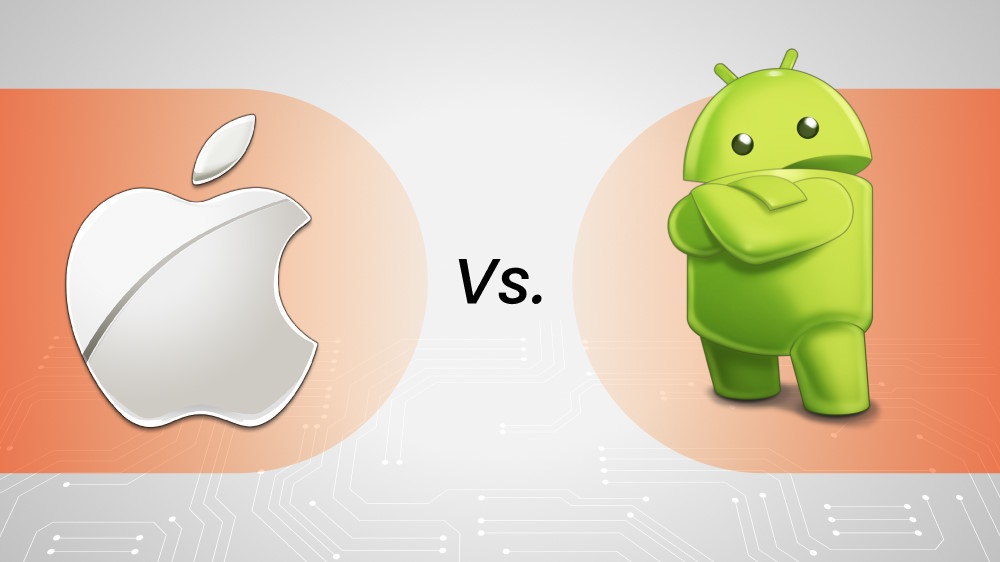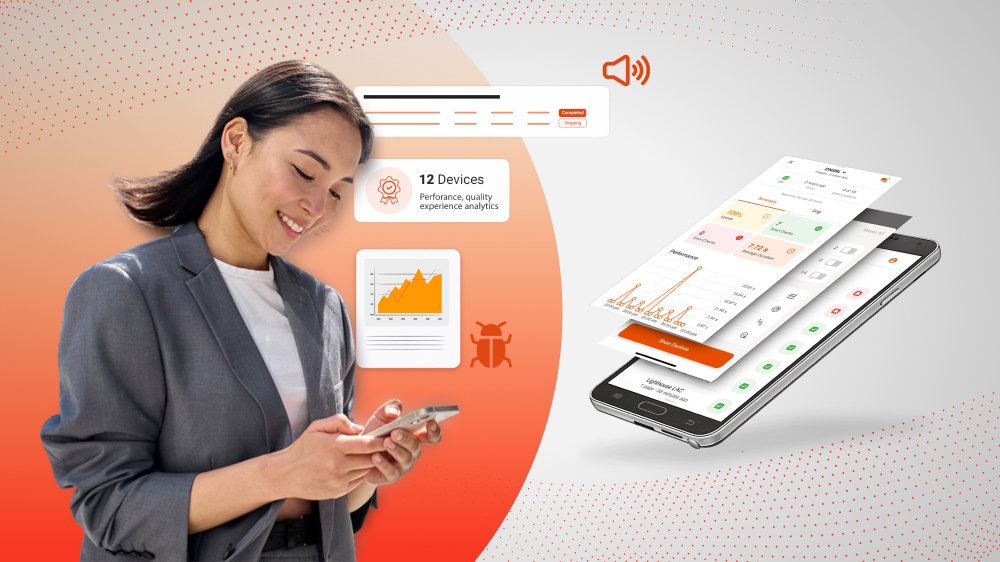
How Healthcare Mobile App Development Can Help Your Medical Practice Grow
Healthcare mobile apps have the potential to boost productivity in medical practice and improve patient health outcomes. But knowing which solution is right for your business can be tough. Here is a detailed breakdown of what the mobile app development process entails.
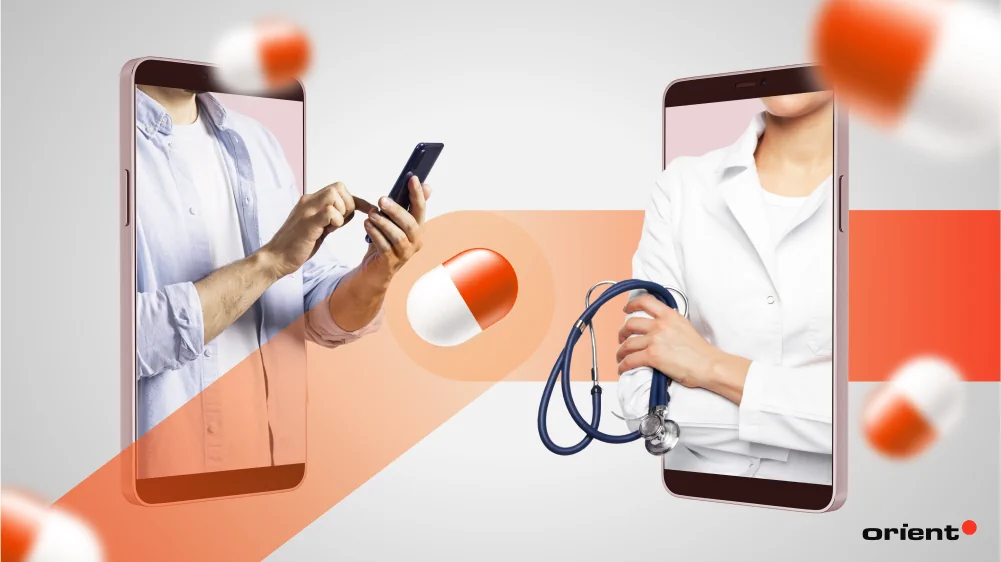
Content Map
More chaptersWhy develop and release a mobile application for your healthcare organization? It can be an effective way to streamline the delivery of healthcare solutions and services, improve patient outcomes, and ensure regulatory compliance.
However, when releasing a healthcare mobile app, knowing what type of solution is right for you can be tricky. There are many factors to consider when digitizing your medical practice, including your target audience and the pain points you hope to resolve. Approaching a software development team – one with experience incorporating a wide range of healthcare solutions into a variety of businesses – can help ensure the success of your digital transformation in healthcare.
In this article, you’ll learn all you need to know about healthcare mobile app development. We’ll discuss what a mobile healthcare app is, how it works, what its benefits are, the different types of healthcare mobile apps, and the steps to follow during the development process.
Key Takeaways:
- Healthcare mobile apps are designed to streamline tasks for patients, doctors, and administrative staff, ranging from booking appointments to remote patient monitoring and more.
- The main benefits of healthcare mobile apps are that they can help streamline the distribution of medication, the delivery of remote medical services, and the monitoring of medical supplies.
- A software development team with experience in the healthcare sector can help you develop a solution catering to your target audience and optimize the healthcare experience.
What Is a Healthcare Mobile App?
A healthcare mobile app is a software product that caters to the individual needs of patients, doctors, and administrative staff.
Designed from the ground up to serve many functions, from monitoring a patient’s vital signs to sending appointment reminders to a patient’s smartphone, healthcare mobile apps help streamline the delivery of medical services in many ways. They can be developed as a standalone app, where the user must download and install the app onto their device to use it. They can also be developed as a web-based service, where the software is hosted in the cloud and accessed by users through their web browser.
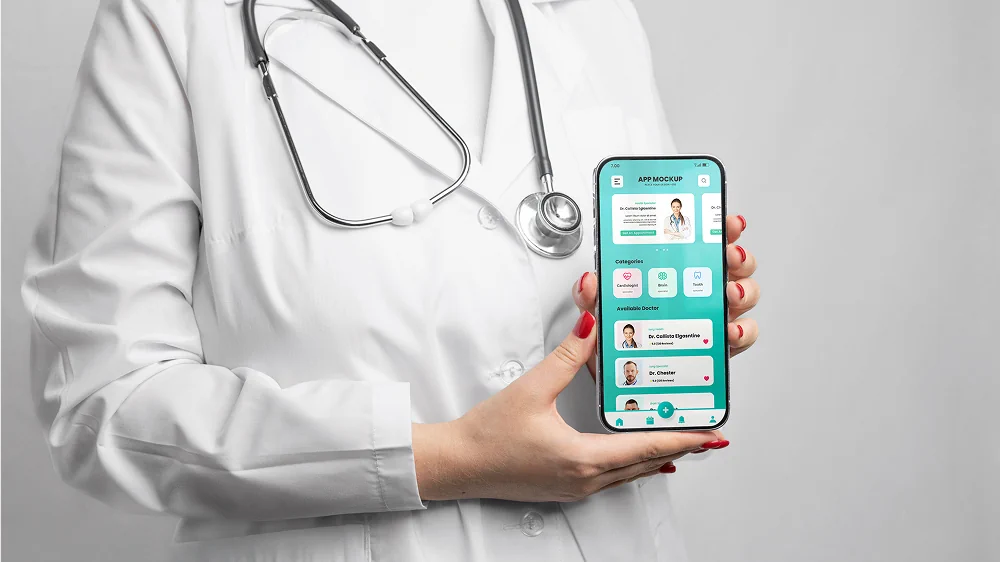
According to Grand View Research, the global healthcare mobile application market size was valued at USD 114.18 billion in 2024 and is expected to grow at a CAGR of 45.2% from 2025 to 2030.
What Are the Advantages of Healthcare Mobile Apps?
There are many advantages to having a healthcare mobile app in your medical practice. They can help boost the productivity of your medical staff, improve patient health outcomes and satisfaction rates, and ensure compliance with regulatory standards like HIPAA in the United States and the GDPR in Europe. Let’s take a closer look at these advantages in greater detail.
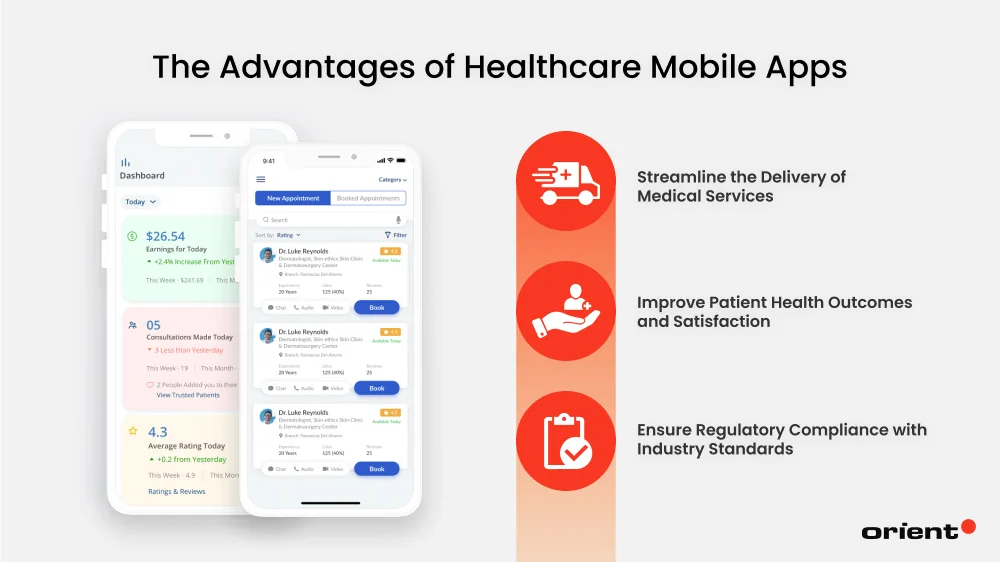
Streamline the Delivery of Medical Services
From sending automated appointment reminders to patients to automatically replenishing low medical supplies, healthcare mobile apps help streamline the delivery of medical services in many ways.
From a medical professional’s perspective, such apps can help them deliver more personalized patient care, streamline the flow of information between departments, and facilitate faster, more informed decision-making. For patients, these apps make it easier for them to book appointments, receive medical services remotely (through telehealth appointments), and monitor their prescription schedule.
Improve Patient Health Outcomes and Satisfaction
Healthcare mobile apps make it easier for medical professionals to treat their patients, and for patients to receive the care that they need. Patients with limited access to onsite medical services, such as those living in remote areas, benefit from telemedicine. It lets them attend video chat appointments and receive online prescriptions via email and SMS.
Doctors can also use advanced diagnostics apps to flag potential health concerns early and deliver more personalized treatment plans. Diagnostics apps can analyze a patient’s symptoms and recommend several possible conditions based on historical trends and patterns, which results in more accurate and timely healthcare services.
Ensure Regulatory Compliance with Industry Standards
Data privacy laws like HIPAA and GDPR have strict rules to protect sensitive medical data from disclosure without a patient’s consent. How these standards apply to your medical practice depends on your region and the type of data you process.
To guarantee your medical practice is compliant with the relevant data privacy laws, use healthcare mobile apps that are built with security in mind. This means using healthcare apps that follow cybersecurity best practices like two-factor authentication, role-based permission access, and robust data encryption.
These systems help prevent unauthorized access from internal staff and third-party entities, the intentional modification or deletion of sensitive patient data, and ensure that medical data is stored in its country of origin.
By partnering with a software development team, one who has experience developing healthcare mobile apps, they can incorporate the latest cybersecurity measures into your software. At Orient Software, we have experience deploying custom healthcare software solutions designed to prevent unauthorized access, protect sensitive data, and maintain user trust.
What Are the Different Types of Healthcare Mobile Applications?
Most healthcare mobile apps fall into two separate categories: apps for patients and apps for healthcare providers. The functionality of these apps depends on the target user and the outcomes they aim to achieve. Let’s compare the differences between these healthcare mobile apps in greater detail.
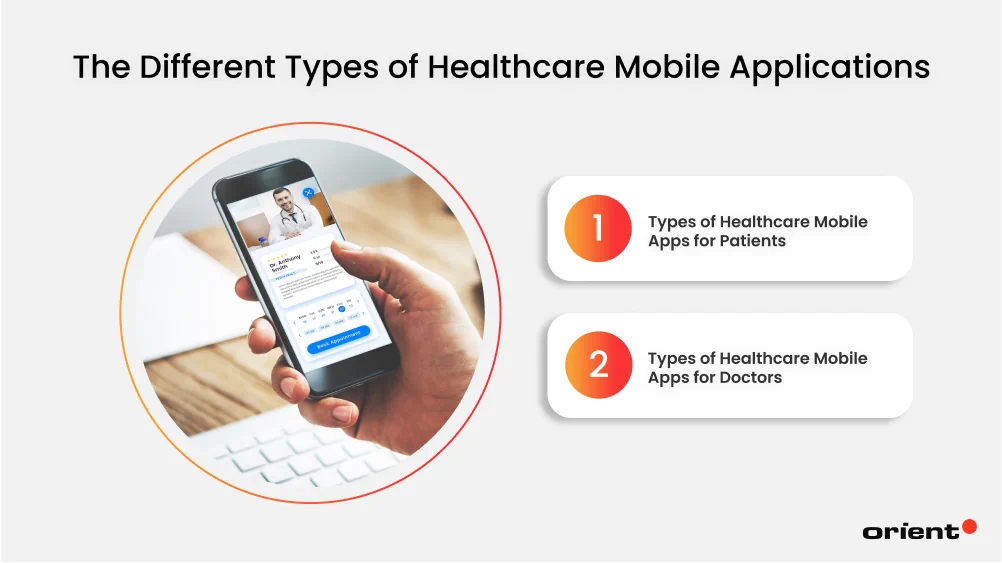
Types of Healthcare Mobile Apps for Patients
Patients have a strong demand for immediate access to high-quality medical services. Being able to get the medication they need promptly and self-monitoring their vital health signs are two examples of healthcare mobile apps that excel in this field. Common types of healthcare apps for patients include:
- Healthcare monitoring apps: Healthcare monitoring apps are typically found on wearable devices like smartwatches. They contain advanced technology designed to monitor real-time vitals, such as heart rate, daily steps, blood sugar levels, and more. These apps empower patients to make healthier diet and lifestyle choices, such as eating more nutrient-rich foods and engaging in more physical activities. According to Statista, the three main health aspects that US consumers use for fitness trackers are exercise, blood pressure, and heart rate.
- Appointment booking apps: Appointment booking apps make it easier for patients to book and reschedule appointments, manage their patient profile, and receive appointment reminders. Typically installed on your device as a standalone app, these apps let you book appointments at your preferred date and time. You can also choose your preferred medical practitioner for any appointment as long as their availability permits. These apps also benefit medical practitioners, as administrative staff can manage all patient bookings in a central platform.
- Social network apps: Social network apps for patients are designed to simplify communication between patients and caregivers. Some apps serve as a platform for patients with specific ailments to connect, share ideas, and support one another. For example, there’s the Belong Cancer App, a social networking app for networking and navigating treatment journeys for cancer patients and caregivers. Best of all? Users can engage with these apps anonymously if they wish to do so.
Types of Healthcare Mobile Apps for Doctors
On the other hand, there are also healthcare mobile apps for doctors, specialists, and administrative staff. They help streamline the delivery of medical services, manage medical inventory, and provide teleheath services.

- E-Prescription Apps: An e-script app allows doctors and specialists to prescribe medication to patients electronically. They serve as an alternative to paper-based prescriptions, where a medical professional sends a digital copy of the prescription to a patient’s device via email or SMS. The patient can then process the script at a pharmacy without needing a physical copy. E-scripts are a quick and easy way for doctors to distribute scripts remotely through telehealth services.
- Telehealth Apps: Telehealth apps allow doctors, specialists, and other healthcare professionals to conduct appointments remotely. To attend a video call appointment, participants need only a stable internet connection, a web browser, and a web camera with a built-in microphone. This helps lower the barrier to patients’ entry to healthcare services. It reduces their clinic travel expenses and makes proactive care more attainable.
- Point of Care Decision-Making Apps: Medical professionals are often required to make on-the-spot clinical decisions. Such examples include prescribing medications, responding to medical emergencies, and handling last-minute patient inquiries in a hospital setting. Point-of-care apps make it easy for healthcare service providers to gain real-time access to patient data. For example, electronic health records, lab results, and imaging data. They can then utilize this data to deliver personalized treatment plans that cater to the patient’s unique circumstances.
Steps to Developing a Healthcare Mobile App
There are many steps to follow when developing a mobile healthcare app. These range from performing market analysis to identifying your target audience to designing, testing, and publishing the final app. Here’s a detailed breakdown of what happens in each step.
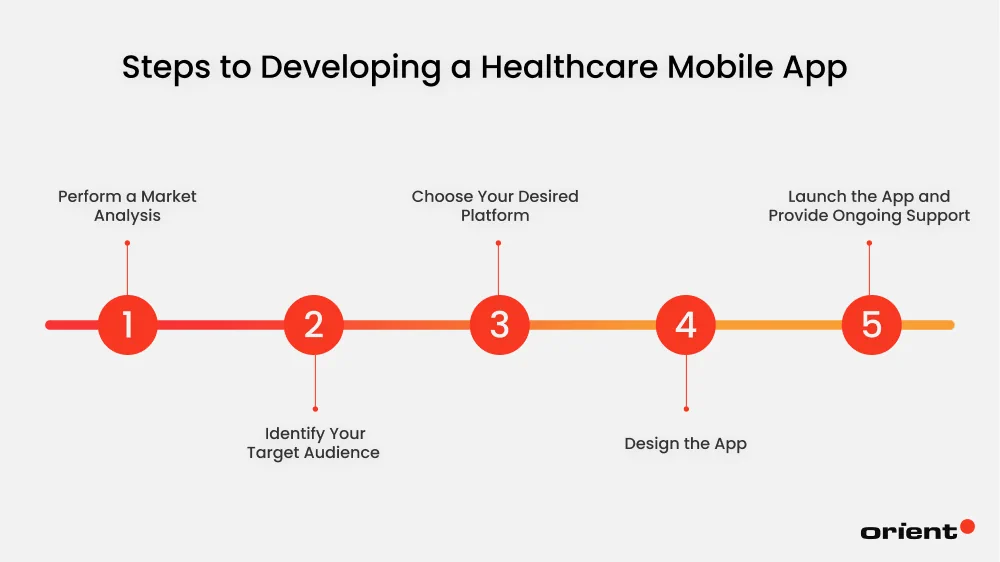
1. Perform a Market Analysis
The first step to developing a healthcare mobile app is to know your target market. This means identifying the problems that you wish to resolve, and determining if there is a need for your service in the first place. You also need to know what value your service will bring to the patient experience – that other competitors aren’t already doing.
2. Identify Your Target Audience
The next step is to identify who is your target audience and their pain points. If your target users are patients, then some of their pain points may be long waiting times, prescription medication errors, and limited access to onsite medical services.
What if your target users are medical professionals? Then, their pain points may be staff shortages, an overabundance of paperwork, and not having enough quality time with patients. By partnering with an experienced app development company, they can identify your customer segment and propose a custom solution that helps alleviate their pain points.
At Orient Software, we take the necessary steps to ensure your medical app aligns with your customer’s desired outcomes. This way, you receive a solution that helps you achieve your business outcomes and enhance the patient experience.
3. Choose Your Desired Platform
In most cases, you’ll have the choice between developing for Android or iOS devices. The main advantage of developing one operating system (OS) is that it’s easier to take advantage of its proprietary features.
However, sticking to one platform limits your potential to reach more users. Also, porting one software version to another means managing multiple code bases, which can be costly and time-consuming.
Depending on your circumstances, your software development team may recommend a cross-platform solution. Your tech team will advise you on the pros and cons of this approach. They’ll also help you choose the desired front- and back-end technology to ensure the software integrates seamlessly with your existing infrastructure.
4. Design the App
Once your product’s vision and technology stack has been established, the software development team will start building the app.
By taking into account your technical requirements and the user journey, they’ll develop a prototype healthcare mobile app that delivers a positive user experience. They’ll also optimize the app, ensuring it runs smoothly and is compatible with your chosen platforms and devices.
At Orient Software, we follow the Agile methodology to deliver quality products on time and to the highest standards. This approach enables us to incorporate continuous feedback into the process and respond to changes. This increases the odds of your healthcare mobile app succeeding in today’s dynamic digital landscape.
5. Launch the App and Provide Ongoing Support
Once the app is fully developed, it’s ready to be launched into users’ hands. But that doesn’t mean the development team’s work is done. You should also have a post-launch support plan. This allows you to proactively respond to user feedback, address unforeseen issues, and gradually incorporate quality-of-life improvements into the software.
Ideally, you should have the same development team that built the app to support it, too. These people will already be familiar with your source code. This eliminates the need to hire a new team and get them up to speed with your software’s architecture. As a result, software improvements can be implemented faster and more easily.
Launch Your Next Healthcare Mobile App with Orient Software
By now, you should have a deep understanding of what it takes to launch a healthcare mobile app. It involves taking the time to understand your target audience, defining your technology stock, and working with healthcare app developers who use their knowledge of the healthcare industry to deliver a product that meets your needs.

At Orient Software, we have years of experience developing and maintaining digital solutions for healthcare clients. Our technical proficiency, strong communication skills, and knowledge of the latest trends regarding mobile app development are second to none. They enable us to deliver innovative digital solutions for the healthcare sector.
Contact us today to learn more about our healthcare app development services.

